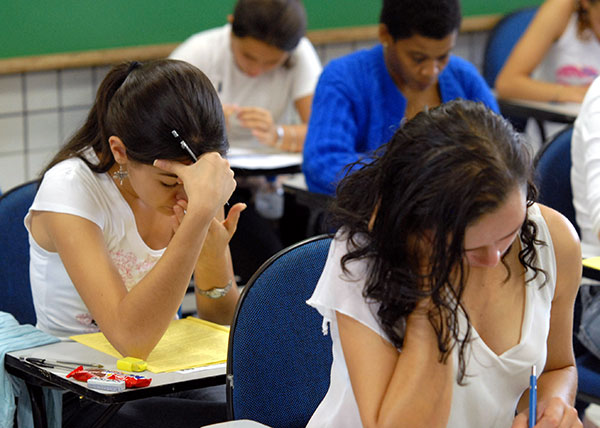
Interpreting Your Child’s PARCC Scores
Originally published on the Macaroni Kid website

It’s the night before the big state exam, and your third grader is engulfed in fear. The test is new, harder, and computerized. He’s not sure how he will perform or whether he’ll even finish the test. He is about to take the Partnership for Assessment of Readiness for College and Careers, or PARCC exams.
While past exams included more straight forward questions, a PARCC math question might look something like this:
Third grade students created a total of 500 art projects for the year. Sophie created 36 projects. Joy created 21 projects.
Answer the following questions:
What is the total number of projects created by the rest of the class? Jack created 9 more projects than Sophie. How many more projects did Jack create than Joy?
Yes, these questions are hard – or harder, at least, than the traditional plug and solve types of questions that students answered on standardized exams of the past. Yet the English and Math PARCC tests are different – they involve more problem solving and critical thinking, and, unlike prior standardized exams, are considered predictors of career and college readiness for students in grades 3-11.
Unlike the previously administered NJ ASK, which apparently identified students who were struggling but didn’t give enough information on which skills they hadn’t mastered, and the HSPA for high school students, given in 11th grade but assessing material learned in 8th and 9th grade, the PARCC exams are designed to be more interactive, efficient, and flexible measures of future success.
These exams have sparked great controversy with both parents and teachers, and many parents elected to have their child “opt out” from taking the test. However, for those who did take the exams in 2015, the results are finally in. Many parents are not quite sure how to interpret the results. What exactly do these scores mean?
For starters, parents should look at their child’s performance level on the report sent to them, given on a scale of 1-5, which indicates whether their child is meeting grade level expectations. Students who scored 4 or 5 are considered to be meeting expectations. Those who scored a 3 are approaching expectations, but don’t fret just yet – they still may be on track according to officials, despite this seemingly low score.
The previously administered NJ ASK tests gave students an individual score, which was compared to an average score, and placed into one of three groups: advanced, proficient, or partially proficient (in need of intervention). Because the PARCC tests are longer and assess a wide variety of skills, the report provides a more specific explanation to parents of the various skills tested and how their child performed in each one, compared to the school, state, district, and PARCC averages. Look closely at these reports: they are more detailed than the ones from previous state exams, elaborating on how students performed on specific skill sets. Based on these results, teachers can analyze which skills their class performed better or worse on and adjust their instruction accordingly.
Ultimately, with the help of the PARCC results, parents should be able to identify their child’s academic weaknesses and work in collaboration with teachers to better address any areas of concern. While the PARCC exams continue to spark controversy and are considered to be more challenging tests for most students, the results can provide helpful information that can be used to identify struggling kids and fine tune the classroom curriculum. By reading the results and understanding the specific strengths and weaknesses of your child within given skills, you can work with your child’s teacher to individualize and maximize his education.
